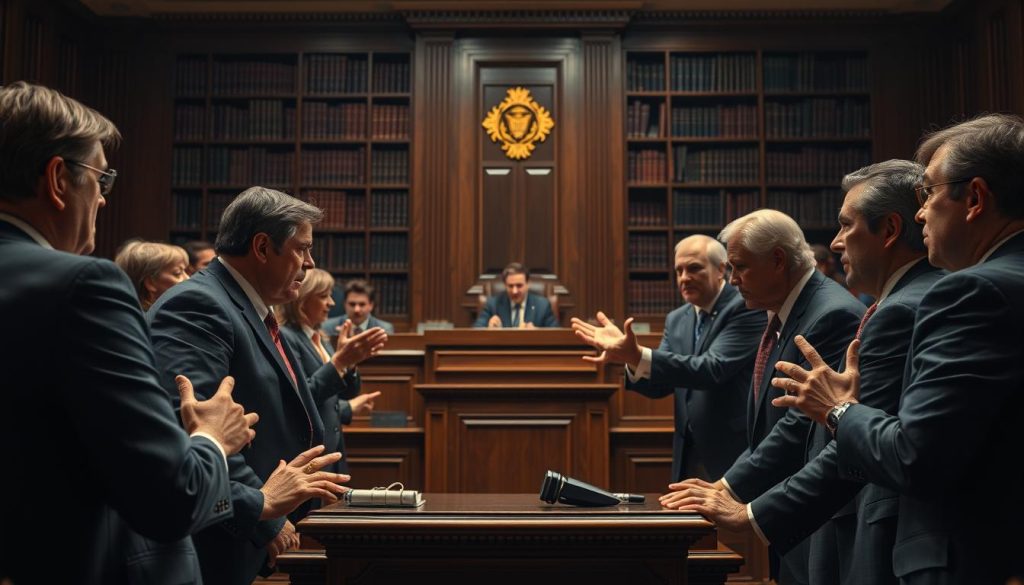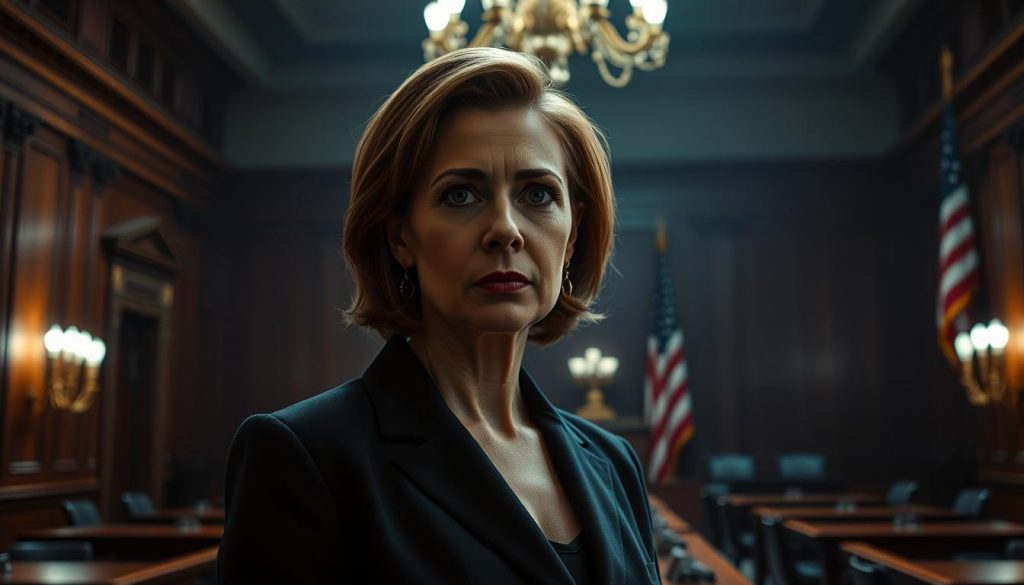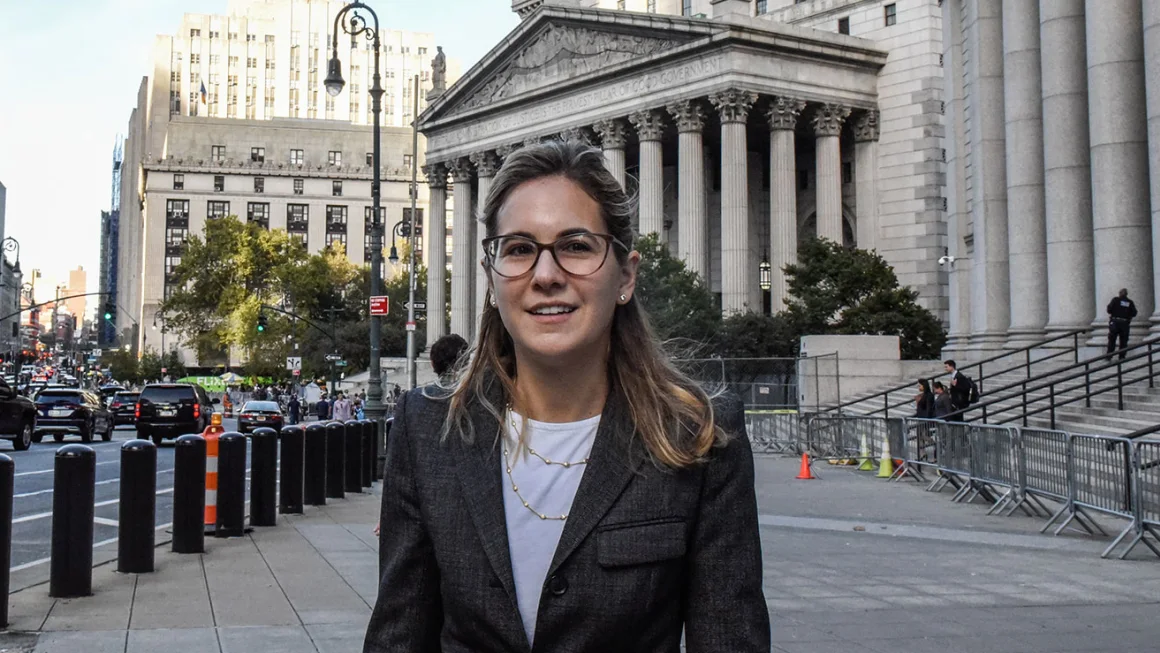Danielle Sassoon is a prominent federal prosecutor known for her work in the Southern District of New York. Her career took a dramatic turn when she chose to resign rather than follow a controversial order from the Justice Department. This decision has placed her at the center of a high-stakes legal and political conflict.
The case involved corruption charges against New York Mayor Eric Adams. Despite significant political pressure, Sassoon refused to dismiss the charges, citing concerns over a potential quid pro quo arrangement. Her resignation letter highlighted these issues, making her a key figure in discussions about prosecutorial integrity.
This story also involves other notable individuals, including Emil Bove, adding layers of complexity to the situation. Sassoon’s actions have sparked broader conversations about the role of the Justice Department and the challenges faced by those within it.
Key Takeaways
- Danielle Sassoon is a well-known federal prosecutor in the Southern District of New York.
- She resigned rather than follow a controversial Justice Department order.
- The case involved corruption charges against New York Mayor Eric Adams.
- Sassoon refused to dismiss the charges despite political pressure.
- Her resignation letter highlighted concerns over a quid pro quo arrangement.
- The story involves multiple key players, including Emil Bove.
- Sassoon’s actions have broader implications for prosecutorial integrity.
Background and Context
The Southern District of New York has long been a cornerstone of federal prosecutions. Known for its independent streak, this office has handled some of the most high-profile cases in the nation. Its reputation for integrity often puts it at odds with political pressures.
Historical Overview of Federal Prosecutions in New York
Federal prosecutors in New York have a history of resisting external influence. From organized crime to financial fraud, the office has tackled complex cases with determination. This independence has sometimes led to clashes with the Justice Department.
One notable example is the Saturday Night Massacre in the 1970s. During this event, multiple officials resigned over political interference. This historical parallel highlights the ongoing tension between prosecutorial independence and political directives.
The Timeline of Resignations and DOJ Orders
In recent years, the Justice Department issued an order to dismiss corruption charges against a prominent figure. This decision sparked immediate backlash. Prosecutors in Manhattan and Washington faced intense pressure to comply.
The timeline of resignations began with a deputy in New York stepping down. This was followed by others, including top officials in the department. Each resignation underscored the growing divide between the Justice Department and its prosecutors.
These events have raised questions about the role of political influence in legal decisions. The public controversy surrounding the resignations has only deepened the debate.
Key Players and Developments

The resignation of a key federal prosecutor has sparked widespread debate over political influence in legal decisions. This controversy involves several prominent figures, each playing a critical role in shaping the narrative. Their actions and responses have added layers of complexity to an already high-stakes situation.
Insights from Sassoon’s Resignation Letter
In her resignation letter, the federal prosecutor highlighted concerns over a potential quid pro quo arrangement. She stated, “I cannot in good conscience dismiss charges under improper political pressure.” This bold stance underscored her commitment to prosecutorial integrity.
Her refusal to drop the indictment against a prominent figure drew attention to the challenges faced by officials in high-pressure roles. This decision has since become a focal point in discussions about the independence of the judicial system.
Emil Bove’s Memo and DOJ Directives
Emil Bove, a senior official, issued an eight-page memo criticizing the prosecutor’s defiance. The memo attempted to reassign the corruption case, citing procedural concerns. Its aggressive tone raised eyebrows within the legal community.
Bove’s actions have been interpreted as an effort to align the case with broader political directives. This move has further fueled debates about the role of political influence in legal processes.
Responses from Mayor Adams’ Legal Team
Mayor Adams’ legal team has vehemently denied any quid pro quo arrangement. Alex Spiro, the lead attorney, stated, “There is no evidence to support these allegations.” The team has framed the charges as politically motivated, emphasizing their client’s innocence.
Their response has added another dimension to the controversy, with both sides presenting starkly different narratives. This divergence has only deepened public interest in the case.
| Key Player | Role | Key Action |
|---|---|---|
| Federal Prosecutor | Resigned over political pressure | Refused to dismiss charges |
| Emil Bove | Senior Official | Issued memo reassigning case |
| Mayor Adams’ Legal Team | Defense | Denied quid pro quo allegations |
danielle sassoon emil bove eric adams eric adams us attorney eric adams case dan

The recent events surrounding a high-profile legal case have brought unprecedented attention to the integrity of federal prosecutions. This situation has raised critical questions about the independence of the justice system and the influence of political directives.
Implications for Prosecutorial Integrity
The resignation of a key federal prosecutor has highlighted the challenges faced by officials in maintaining independence. In her resignation letter, she emphasized, “I cannot in good conscience dismiss charges under improper political pressure.” This statement underscores the ethical dilemmas that arise when political and legal interests collide.
The Justice Department’s intervention in this case has sparked debates about the role of leadership in shaping legal outcomes. The controversial order issued by a senior official has further complicated the situation, leading to internal turmoil and multiple resignations.
Political and Legal Repercussions
The fallout from this case extends beyond the courtroom. The mayor’s legal team has denied any wrongdoing, framing the charges as politically motivated. This narrative has added another layer of complexity to the public discourse.
The broader implications for New York’s legal environment are significant. The case has exposed the delicate balance between political policy and legal procedures, particularly in areas like immigration and corruption.
| Key Development | Impact |
|---|---|
| Resignation of Federal Prosecutor | Highlighted ethical concerns in prosecutorial independence |
| Justice Department Order | Raised questions about political influence in legal decisions |
| Mayor’s Legal Team Response | Added complexity to the public narrative |
These developments could influence future decisions by federal prosecutors and shape public confidence in the justice system. The case serves as a reminder of the importance of maintaining integrity in the face of external pressures.
Conclusion
The events surrounding this high-profile case have sparked significant debate about the independence of the justice system. A federal prosecutor’s resignation over political pressure highlights the challenges of maintaining integrity in the face of external influence.
Responses from key officials and internal conflicts within the department underscore the complexity of the situation. This case has broader implications for New York’s legal landscape, drawing parallels to historic collapses in prosecutorial leadership.
Moving forward, the controversy may lead to further investigations or a re-examination of the charges. The interplay between political policy shifts and legal processes remains a critical issue.
This case serves as a reminder of the importance of upholding the rule of law. Maintaining prosecutorial integrity is essential to preserving public trust in the justice system.
FAQ
Who is Danielle Sassoon?
Danielle Sassoon is a specialist in the Southern District of New York, known for her work in federal prosecutions and her recent resignation from the Department of Justice.
What is the historical context of federal prosecutions in New York?
New York has a long history of federal prosecutions, often involving high-profile cases related to corruption, immigration, and other significant legal matters.
What led to the recent resignations and DOJ orders?
A series of directives and internal memos, including one from Emil Bove, prompted resignations and policy changes within the Department of Justice, particularly in New York.
What did Sassoon’s resignation letter reveal?
Her resignation letter highlighted concerns about prosecutorial integrity and the impact of recent DOJ directives on ongoing cases.
What was in Emil Bove’s memo?
Emil Bove’s memo outlined new DOJ directives aimed at streamlining prosecutions and addressing internal challenges within the department.
How did Mayor Eric Adams’ legal team respond?
Mayor Eric Adams’ legal team issued a statement defending his administration’s policies and cooperation with federal investigations.
What are the implications for prosecutorial integrity?
Recent developments have raised questions about the independence and fairness of federal prosecutions, particularly in high-stakes cases.
What are the political and legal repercussions?
These events could influence public trust in the justice system and shape future policies related to federal prosecutions and immigration enforcement.




